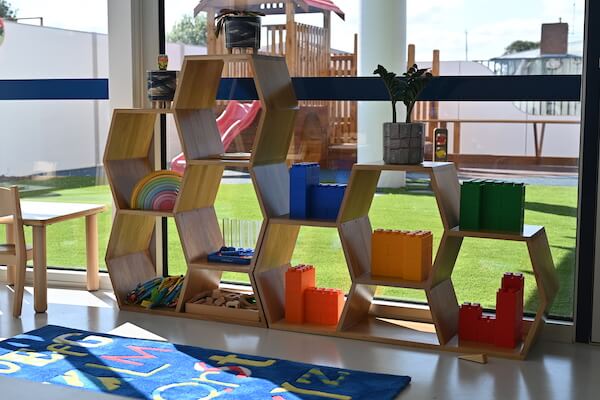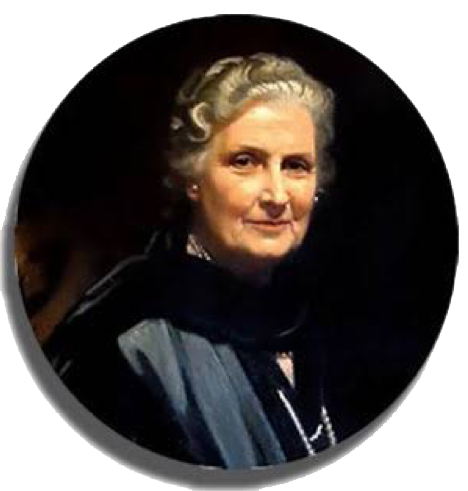
What is Montessori education?
Dr. Maria Montessori, an Italian physician and educator, developed the Montessori education model in the early 20th century. This model places emphasis on a child’s capacity for self-directed learning, their unique individuality, and natural development.
In the Montessori classroom, the environment is designed to foster independence and exploration. Children are given the freedom to select their activities, with teachers guiding them towards appropriate choices. The classroom is set up into child sized work spaces that allow for practical life experiences, sensory exploration, language, mathematics, and cultural subjects.
Children frequently use specially designed Montessori materials that encourage hands-on learning, exploration, self-correction, and problem-solving.
Dr Montessori believed that every human from birth has some tendencies
Self-preservation is a natural instinct to look after oneself and fulfilling one’s needs. Children like to work themselves provided they are given freedom to work with supervision and observation.
Orientation gives a sense of belonging and develops skills to adapt to a new learning environment
Exploration influences physical and cognitive development. It encourages a child to explore surroundings, allowing them to interact with environment and learn. Exploration and interaction can do wonders in helping children understand how things work and how their environment operates..
Children have an innate sense of order and like to do things their own way. They make synaptic connections in their brain doing so
Young children begin to develop abstract thinking through pretend play. In Kindergarten years, child’s ability to pretend is taken to a high level of abstraction.
A child’s individual responses to materials, experiences and ideas inspire their creativity and imagination. They imaginatively use a simple object to represent something and try on a variety of symbolic roles.
Communication is about more than just spoken or written words. Children communicate through their bodies, facial expressions, drawings etc.. Communication is crucial to children’s holistic development, and research evidence supports the pivotal role that teachers play in facilitating the development of children’s communication skills in educational settings.
Play is work for children in Montessori. By interacting with the resources in a prepared environment, children work and self-construct themselves.
Children like to repeat activities because repetition provides the practice children need to master a new skill. Repetition also improves speed, increases confidence, and strengthens neural connections in brain.
Learning to concentrate helps children to learn quicker, and finish things. It also reduces impulsive behaviour and restlessness and be calm.
Children try to be precise so that they get the same output every time and that engaged them in learning and making connections.
The Montessori learning material is self-correcting, giving an opportunity to every child to correct their mistakes and work on self-perfection.
The Montessori education methodology emphasizes a child’s natural development and individuality, while cultivating skills necessary for success in daily life, such as creativity, independence, and social skills. By fostering independence, exploration, and hands-on learning, Montessori education helps children become lifelong learners and achieve their full potential.

Dr Maria Montessori
“The child has a mind able to absorb knowledge. He has the power to teach himself.”
– Dr. Maria Montessori
Montessori education is an educational model developed in the early 20th century by Italian physician and educator, Dr. Maria Montessori. This model emphasizes the child’s capacity for self-directed learning, their individuality, and natural development.
The Montessori classroom environment is designed to facilitate independence and exploration. Children are given the freedom to choose their work, with teachers gently guiding them toward appropriate activities. The classroom is set up into various ‘stations’ that accommodate practical life, sensorial exploration, language, mathematics, and cultural subjects. Often, children work with specially designed Montessori materials that allow them to learn through hands-on activities and encourage exploration, self-correction, and problem-solving.
Under the Montessori philosophy, the role of a teacher is to observe and guide a child’s progress, inspiring curiosity, and fostering independence. The teacher acts as a facilitator rather than an instructor, helping children to cultivate a joy of learning that will stay with them for life.
Montessori education emphasizes learning at the child’s own pace and on their terms, promoting socialization, creativity, and individuality. Research shows that Montessori children tend to be more academically accomplished, more socially adjusted, and have higher levels of self-esteem.
Montessori education is a methodology that emphasizes a child’s natural development and individuality while fostering fundamental skills necessary to succeed in everyday life, such as creativity, independence, and social skills. By emphasizing independence, exploration, and hands-on learning, Montessori education helps children become lifelong learners and discover their full potential.

